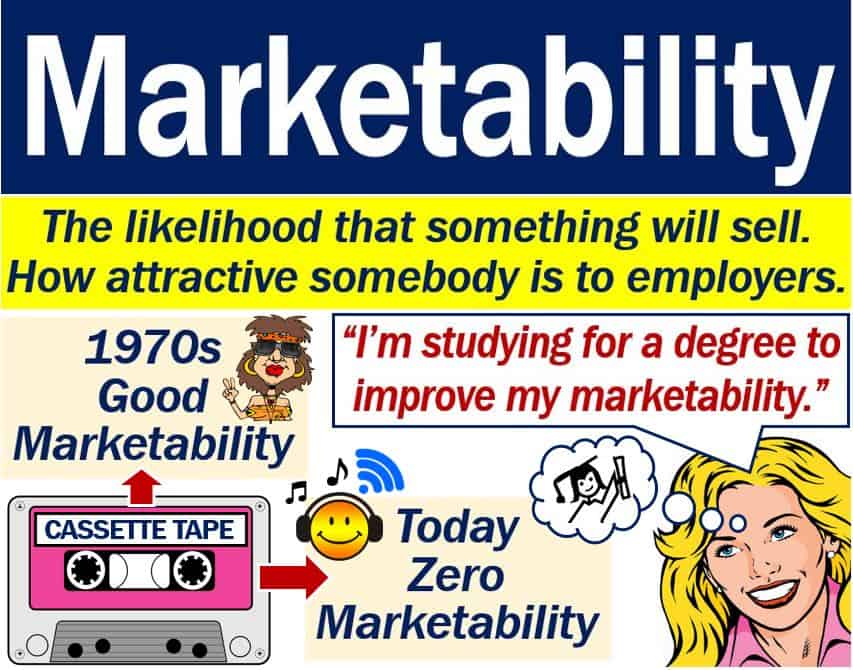Marketability may apply to things or people. When it applies to people, we are talking about making them attractive to potential employers or clients. People may study for a degree to improve their marketability. This means that they believe that getting a degree improves their chances of getting either a job or a better job.
When it applies to things, we are talking about their ability to be marketed or sold. If you are selling your house, you might improve its marketability if you convert the loft into a living area. In other words, converting the loft will make it easier to sell the house.
Marketability is an adjective while marketable is a noun. If something is marketable, we can sell it easily.
Marketability of securities
We often use the term when talking about securities. Securities are financial instruments, i.e., contracts that receive a value when people trade them. Bonds, for example, are securities.
Any decent security sells if there is an active marketplace for it.
In this sense, the term is similar to liquidity. However, liquidity implies that there is a set value for the security. Marketability does not mean that. It means that we can buy and sell the security easily.

Two examples
Some products sell well while others do not. In other words, some goods have good marketability while others do not.
Something that sells like hotcakes today may not sell at all in a few decades’ time.
Cassette tapes before and now
In the 1970s and part of the 1980s, cassette tapes were extremely popular. People bought them for their walkmans, their hi-fi systems, and to listen to in their cars.
Today, nobody wants them. Nobody currently wants to buy cassettes. They would not sell even if they went for just 10 cents each.
Cassettes do not sell because they gave way to CDs. CDs subsequently started to die out when we all began streaming our music from The Cloud.
The Cloud or cloud computing is a computing system where files and other data exist remotely, i.e., in remote computers. Today, we store more and more data, including music, in The Cloud, which basically means the Internet.
Chewing gum before and now
Other goods have managed to maintain their marketability for a long time. Chewing gum, for example, sells as well today as it did in the 1950s.
